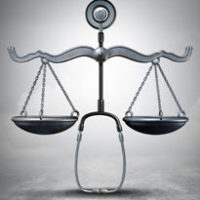Can I File a Medical Malpractice Lawsuit Even If I Don’t Know Exactly What the Doctor Did Wrong?

The key to winning any personal injury case is proving the defendant’s negligence. In many cases the negligent act is obvious and witnessed by the plaintiff. Consider a car that runs through a red light and hits your vehicle. It doesn’t take an expert to figure out what caused the accident.
But medical malpractice is different. Many times, a doctor’s negligence is not witnessed by the patient, who may be unconscious during the event. For this reason, malpractice plaintiffs in Tennessee can rely on a legal rule known as “res ipsa loquitur” to get their cases heard in court. Translated from the original Latin, res ipsa loquitur means “the thing speaks for itself.” Basically, there are two elements to a res ipsa loquitur claim:
- The “instrumentality” that caused the plaintiff’s injury was under the “exclusive control” of the defendant; and
- The accident or injury sustained by the plaintiff “was one which ordinarily doesn’t occur in the absence of negligence.”
Historically, res ipsa loquitur only applied to cases where the defendant’s negligence was so obvious it could be inferred, even by a layperson jury. But Tennessee law expands this principle to certain malpractice cases. In fact, the Tennessee Court of Appeals recently invoked res ipsa loquitur to reinstate a malpractice complaint previously dismissed by the trial court.
This case, Anderson v. Wang, involves laser cataract surgery gone horribly wrong. The plaintiff underwent surgery for both of her eyes. The defendant performed the procedures. While everything went fine with the plaintiff’s left eye, the right eye resulted in “corneal decompensation,” i.e. a swelling of the cornea that impairs the patient’s vision.
The defendant argued before the trial court that the plaintiff could not point to any specific deviation from the accepted standard of care, which is the normal standard in malpractice cases. The plaintiff replied that res ipsa loquitur applied. The trial court sided with the defendant.
But the Court of Appeals disagreed. In an October 5, 2018, opinion, the appeals court said the plaintiff satisfied the legal requirements to pursue a res ipsa loquitur claim. The trial court simply misapplied the law.
As noted above, there are two necessary elements to a res ipsa loquitur claim. The first is that the defendant had “exclusive control” of the instrumentality that caused the plaintiff’s injury. During a deposition, the defendant in this case admitted having such exclusive control during the cataract surgery. The defendant maintained the plaintiff could not point to the “exact instrumentality” that caused her injury. But as the Court of Appeals noted, if the plaintiff knew the exact cause of her corneal decompression, she wouldn’t need to rely on the res ipsa loquitur rule. And with respect to the second element, the plaintiff presented expert testimony from an ophthalmologist who confirmed that “the type of corneal decompensation [the plaintiff] experienced after her cataract surgery ordinarily does not occur absent negligence.”
Speak with a Knoxville Medical Malpractice Lawyer
Medical malpractice cases are perhaps the most complex and difficult of personal injury claims. That is why you need to work with an experienced Knoxville personal injury lawyer. If you have been injured due to someone else’s negligence and need legal advice on how to proceed, contact the offices of Fox, Farley, Willis & Burnette, Attorneys at Law, today.
Source:
tncourts.gov/sites/default/files/anderson.katherine.opn_.pdf
